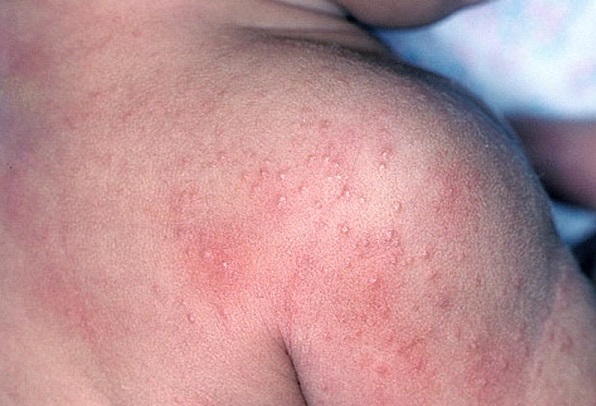Sun allergy Symptoms, Causes, Diagnosis, Treatment and Prevention

What Is Sun Allergy ?
Sun allergy is a medical term used for the representation of several conditions wherein a red, itchy rash appears on the skin areas that are more sun exposed. Among others, sun poisoning or polymorphic light eruption is its common type. Few individuals tend to have a genetic form of sun allergy, whereas others form symptoms when instigated by some other factors, for example specific medications etc.
In addition to this, mild instances of sun allergy can resolve on its own, without the need of medical aid. Though, for the intense cases, medicines or creams are prescribed. Individuals those who develop an intense reaction must take safety measures, whilst cover their skin while being exposed to the sunlight.
What Are The Symptoms Of Sun Allergy ?
The affected skin appearance can greatly vary from person to person, relying upon the disorder he or she is suffering from. Though, few general symptoms of sun allergy are:
- Hives or blisters.
- Scaling.
- Redness.
- Crusting or bleeding.
- Small bumps that can accumulate together and form raised patches.
- Pain.
- Itching.
Often, the aforementioned symptoms occur on the skin areas that have been more sun exposed for example face, neck, hands and bald scalp etc. Besides, these signs generally develop within several minutes-hours after your exposure.
When Is The Right Time To Seek Medical Assistance ?
Consult a dermatologist in case of having intense reactions and symptoms that failed to respond home remedies.
What Causes Sun Allergy ?
A number of factors such as specific medications, health conditions and chemicals are known to cause skin sensitivity to the UV rays of sun. Though, researchers have failed to understand as to why few individuals become allergic to sun and not others. Possibilities of genetic traits exist.
How Is Sun Allergy Diagnosis ?
In majority instances, the doctor can detect sun allergy based upon the physical evaluation of the skin. In case of unclear diagnosis, the doctor can suggest a number of tests to ascertain what has lead to the skin appearance. Few of these tests include:
- UV light testing.
- Photopatch testing.
- Skin sample.
- Blood tests.
How Is Sun Allergy Treatment ?
Treatment of sun allergy depends upon the specific form of allergy the patient is suffering from. More specifically, for mild cases, avoidance is the best treatment, that is, avoiding the sun helps to ease the symptoms caused by the allergic reaction. However, for serious cases of sun allergy, medication and therapy are few known options.
How Is Sun Allergy Preventable ?
Yes, to a greater extent. To avoid sun allergy, it is advice to:
- Limit your sun exposure.
- Use a good sunscreen before going out in the sun.
- After every two hours, reapply the sunscreen.
- Between 10am-4am, the sun tends to be the brightest, therefore, try to avoid your outdoor activities in between the slots.
- Wear protective clothing and sunglasses.
- Never wash your face soon after the sun exposure.
- Avoid tanning beds.
Related Articles :
Wrinkles Symptoms, Causes, Diagnosis, Treatment and Prevention
Sunburn Symptoms, Causes, Diagnosis and Treatment
Soy Allergy Symptoms, Causes, Risk Factors, Diagnosis and Treatment
Amyloidosis Symptoms, Causes, Diagnosis and Treatment
Actinic Cheilitis Symptoms, Causes, Diagnosis and Treatment
Plantar Warts Symptoms, Causes, Diagnosis and Treatment
Plague Symptoms, Causes, Diagnosis and Treatment
Common Warts Symptoms, Causes, Risk Factors, Diagnosis And Treatment
Scorpion Stings Symptoms, Causes, Complications, Diagnosis and Treatment
Polymorphous Light Eruption Symptoms, Causes, Risk Factors, Diagnosis and Treatment
Parvovirus Infection Symptoms, Causes, Diagnosis and Treatment
MRSA infection Symptoms, Causes, Complications, Diagnosis and Treatment
Limited Scleroderma Symptoms, Causes, Risk Factors, Complications, Diagnosis and Treatment
Heat Rash Symptoms, Causes, Diagnosis and Treatment
By : Natural Health News




